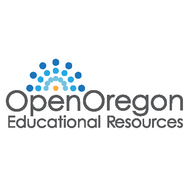
(View Complete Item Description)
Teach in Spanglish is founded on a simple idea: while just a small fraction of today’s college students will progress to the high-level, all-in-Spanish courses offered by language departments, more than two-thirds enter college with the ability to understand Spanish when given context in English, support from their instructor, and time.
Over nearly a decade in the classroom, our team has shown that students who took Spanish for at least two years in high school, at least one year in college, and/or who were raised in a bilingual environment (Spanish as a Heritage Language speakers, or SHL) can, with proper support, engage in high-level analysis of Spanish and Spanglish primary sources and original texts, utilizing insights from linguistics to both structure the classroom experience and guide students in their engagement.
The teach in Spanglish website links to a form that allows instructors to request access to a free Canvas site that contains instructor facing videos, quizzes, and other modules to help get started teaching in Spanglish.
Material Type:
Assessment,
Homework/Assignment,
Module,
Primary Source,
Reading,
Teaching/Learning Strategy
Author:
Julie M. Weise

















